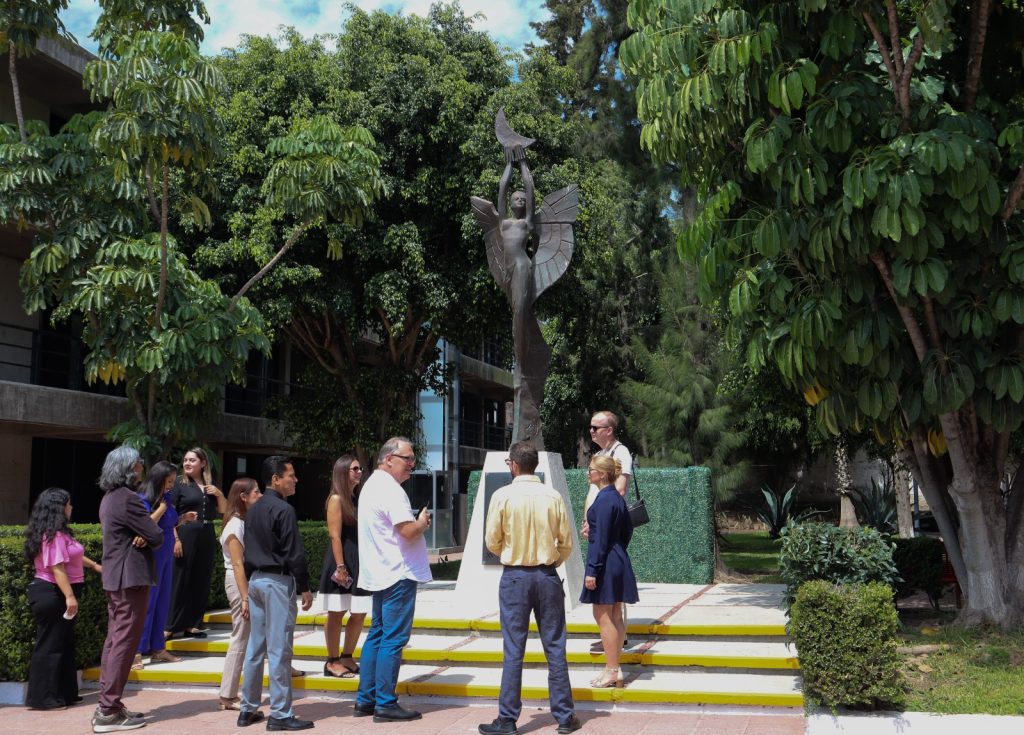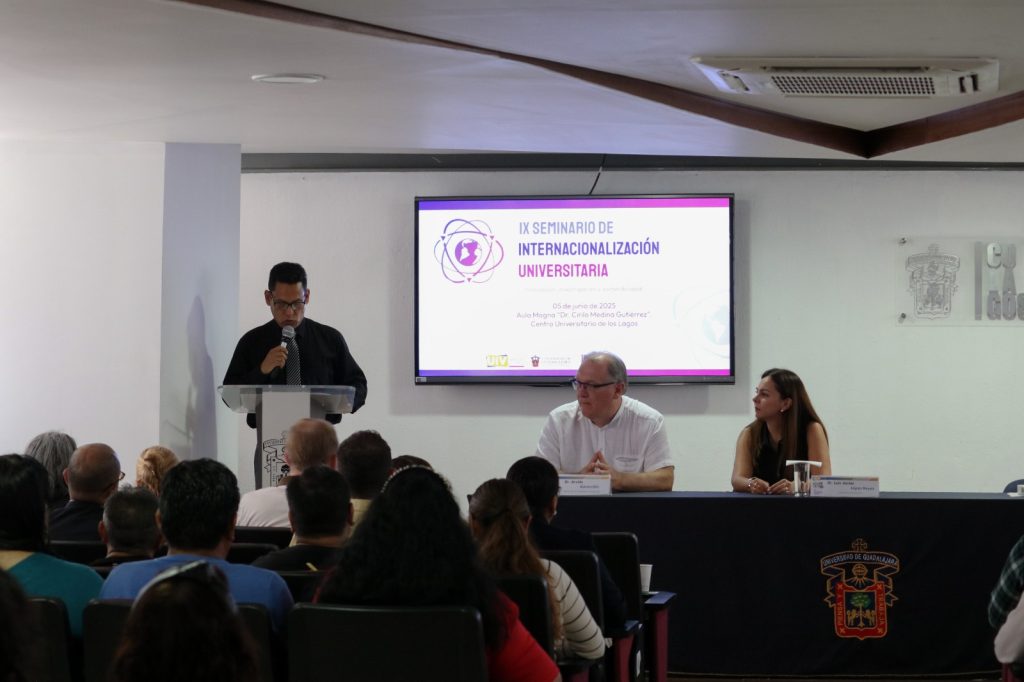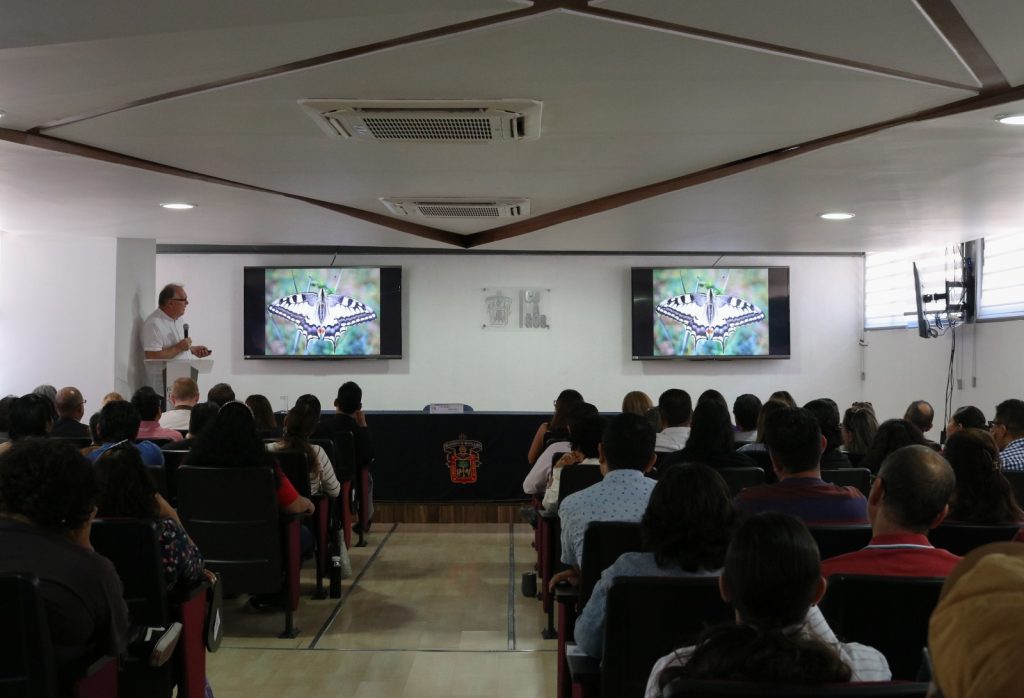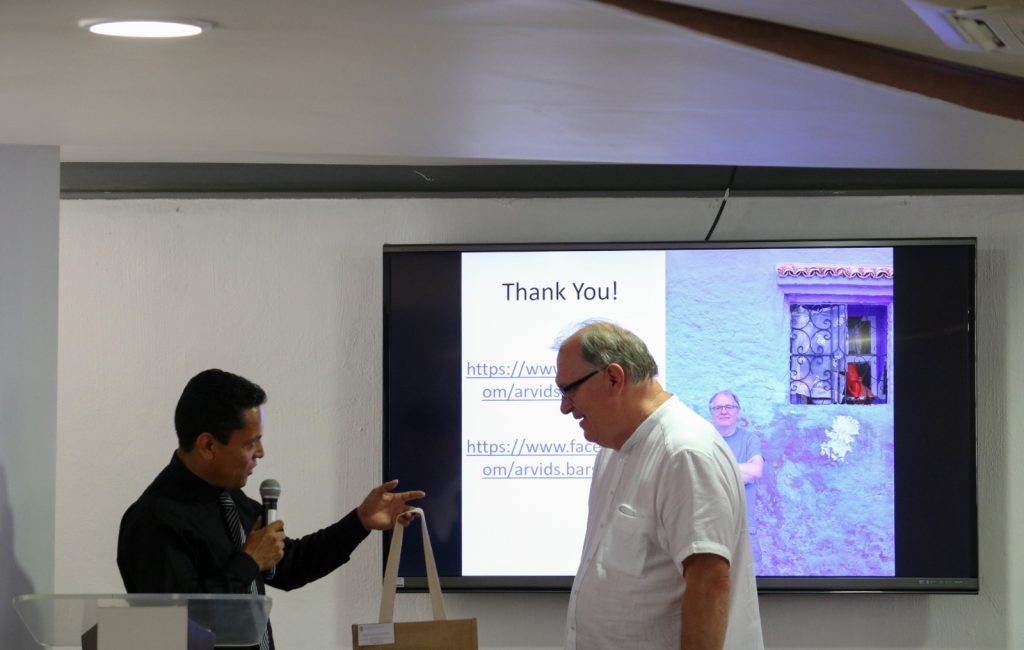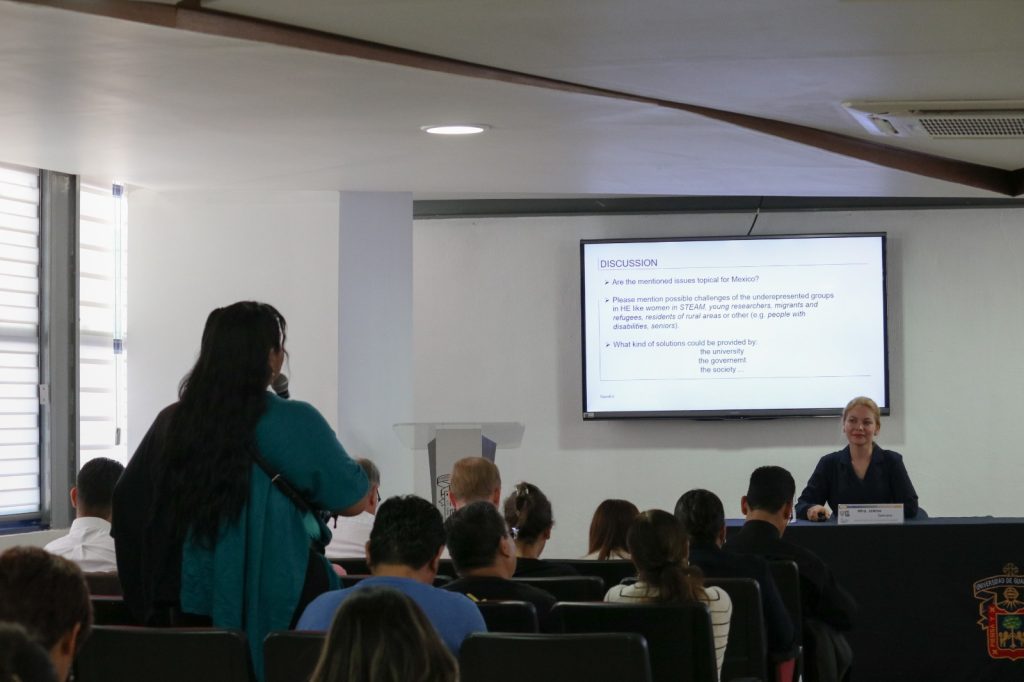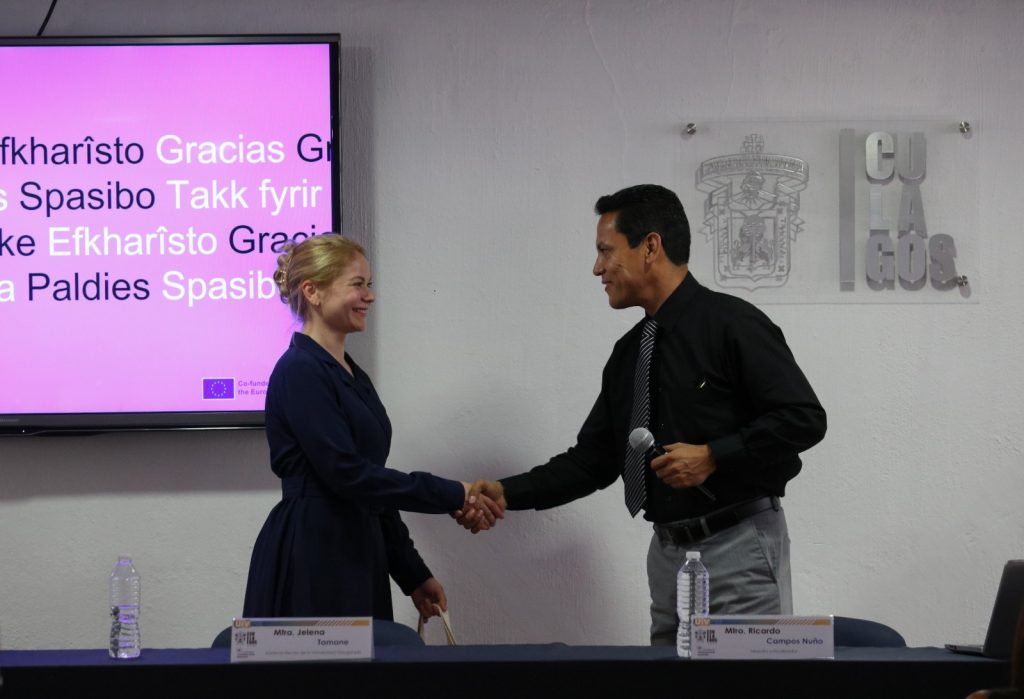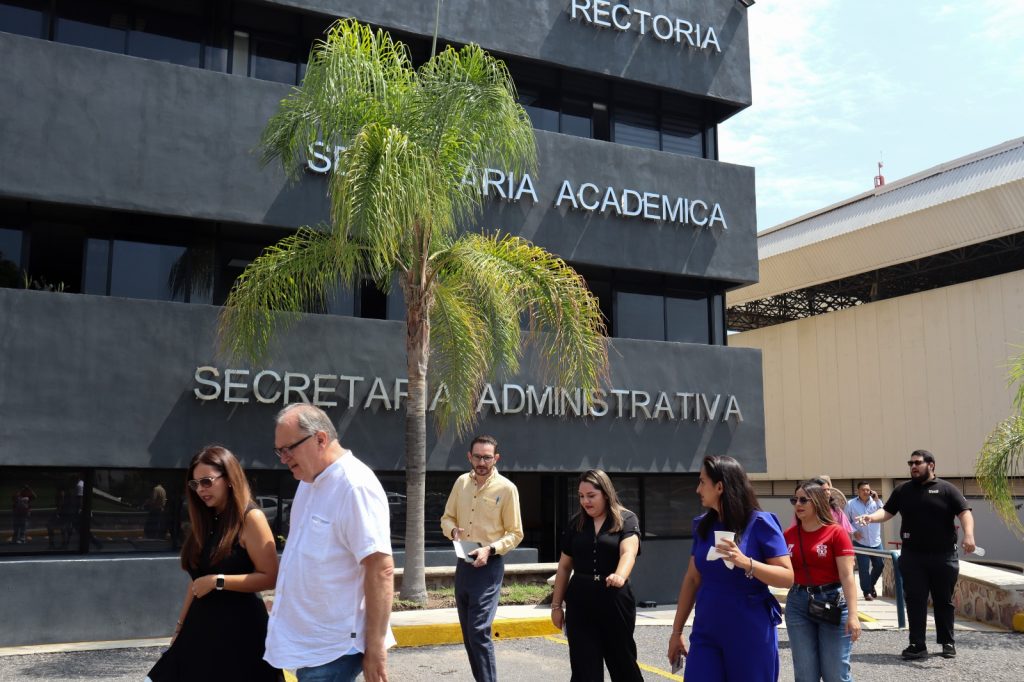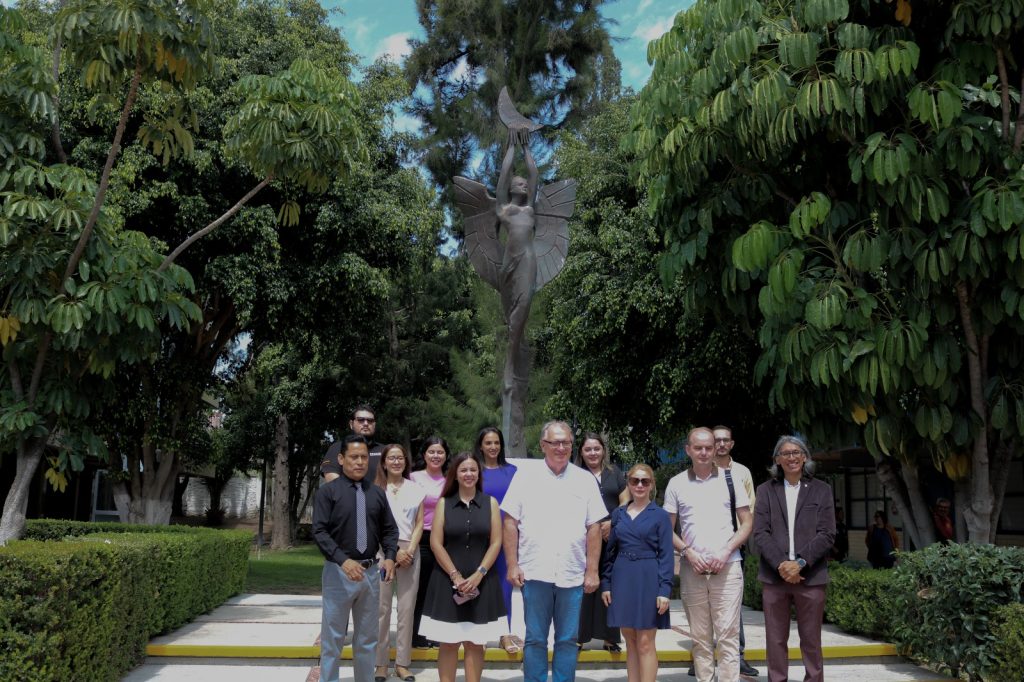
On June 5, 2025 a delegation from Daugavpils University, Latvia, visited the Los Lagos University Centre (CULagos) of the University of Guadalajara.
In frames of the 9th Internationalization Seminar of the University of Guadalajara, devoted to the themes of Innovation, Research, and Sustainability, within the framework of the 2025 International Summer University of the University of Guadalajara, the team from Daugavpils University, including the rector Arvīds Barševskis, vice rector for development Jānis Kudiņš and assistant to the rector Jeļena Tamane were invited to participate in the event.
Opening the meeting, Valeria Viridiana Padilla Navarro, internationalization coordinator of the University of Guadalajara, emphasized that the seminar seeks to cultivate collaborative learning environments for the critical examination of global challenges. She noted the importance of engaging with academic partners from diverse regions to reflect on shared responses to pressing global issues. Ms. Padilla Navarro also highlighted the significance of the Erasmus+ inter-institutional agreement signed in October 2024 between the University of Guadalajara and Daugavpils University, which established a formal basis for inter-institutional cooperation.
Representing Dr. Gloria Angélica Hernández Obledo, rector of CULagos, Dr. Luis Javier López Reyes, Academic Secretary, extended a formal welcome to the Latvian delegation. He reiterated the institution’s commitment to international engagement and noted that the seminar was organized with the intention of reinforcing the role of global themes in both student education and faculty research.
The keynote address was delivered by Dr. Arvīds Barševskis, rector of Daugavpils University, titled “Biodiversity and Global Conservation: Collaborative Science for a Sustainable Future.” Dr. Barševskis provided a comprehensive overview of Latvia’s environmental conservation policies and the structural framework for managing protected natural areas, including national parks and reserves. He also presented visual documentation of endangered species native to Latvia, which form a key part of his ongoing research.
Following the keynote, Jeļena Tamane, assistant to the rector of Daugavpils University, facilitated a workshop entitled “Best Practices and Challenges in University Operations: Collaborative Networks, External Funding, and Strategic Partnerships.” Her presentation examined the institutional structure of Daugavpils University and highlighted several research initiatives, including one of currently the most significant for the university project OpenEU tackling several challenges of higher education in Europe, such as digitalization processes, gender equality issues, the integration of migrants and refugees in higher education and inclusive environment. The workshop prompted a fruitful dialogue between Latvian and Mexican participants, drawing comparisons between the two contexts in terms of inclusive academic practices.
During their visit, the delegation from Daugavpils University also toured key academic and research facilities at CULagos, including teaching spaces and the Research and Innovation Building, where interdisciplinary research projects are conducted. Several promising areas for future collaboration have been identified between the CULagos Research and Innovation Building and the Institute of Life Sciences and Technologies as a result of the visit, particularly in the fields of optical physics and aquaculture.
In frames of the visit to Mexico, Daugavpils University initiated cooperation with the University Centre of Biological and Agricultural Sciences (CUCBA) of the University of Guadalajara, too. A mutual interest in starting collaboration in the field of life sciences has been expressed by both parties. Planned areas of collaboration include joint research projects on biodiversity and conservation, academic mobility for students and researchers, as well as the exchange of best practices in environmental monitoring and sustainable resource management.
The visit of Daugavpils University representatives to the University of Guadalajara was carried out within the framework of the Erasmus+ staff mobility project, which promotes the strengthening of international academic cooperation, the exchange of experiences, and the development of professional competencies.
